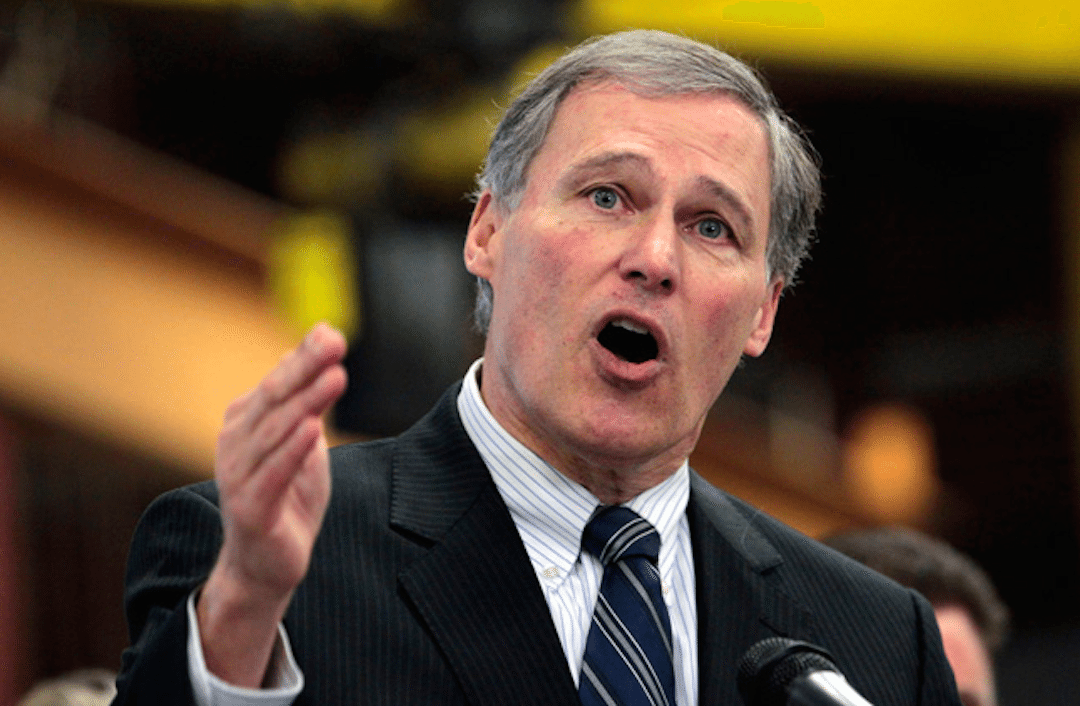The Washington State Office of Superintendent of Public Instruction’s Dan Grimm appeared before the state House Appropriations Committee last week, where he issued a sharp indictment of Jay Inslee’s failed leadership. Grimm – a former Democrat legislator and statewide elected officials – let lawmakers know that Superintendent Randy Dorn is “opposed to the governor’s supplemental budget because it fails to address the state’s obligation to fully and equitably fund basic education.”
Grimm outlined the reality of what needs to happen to resolve the problem associated with K-12 education: cuts in government spending on other programs or tax increases. Grimm went on to explain that Inslee “has a singular obligation to demonstrate leadership [on education] and he has declined to do so.”
Grimm closed his remarks accusing Inslee of preferring to shift his obligation to the state Legislature, while also praising the efforts of GOP state Sen. Bruce Dammeier and former Democrat state Rep. Ross Hunter for showing leadership on education funding.
Inslee’s lack of leadership on education is just one example out of many concerning his failure tenure as governor. During the last legislative session, Inslee proved himself to be irrelevant as the legislature slogged through the longest session in its history. Preferring to pursue his extreme agenda at any cost, the former Congressman that is our green governor has consistently infused his hyper-partisan, D.C.-style politics into our state. Certainly, the issue of education has not been spared the consequences of Inslee’s failure to adapt to his no-longer-so-new position.
Inslee refused to state his opinion on the Washington Education Association’s (WEA) power grab initiative, I-1351, until it was too late—even though the initiative threatened lawmakers’ ability to properly address education spending. He explained that he did not take a public stance on I-1351 when it would actually make a difference because he did not want to sway voters one way or another. Of course, the real reason probably had a lot more to do with the fact that the WEA donated $1 million to his gubernatorial bid.
When Inslee revealed his 2015 budget proposal, he treated education funding as second to rewarding his million-dollar campaign donors, particularly state employee unions, with pay hikes to the tune of a whopping $867 million. As Shift reported, Inslee even asked “universities and colleges to make up some of the costs of pay hikes” using tuition dollars. Inslee’s budget—and Democrats’ budgeting history—made it obvious that he values special interests’ priorities over public education funding.
That’s why Inslee’s supplemental budget should come as no surprise—it’s a continuation of his past position and aligned with his hyper-partisan “leadership” style.




